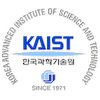The Korea Advanced Institute of Science and Technology – the country’s national research university is offering full scholarships international Masters and PhD students willing to study in South Korea.
The KAIST Scholarship is offered to 94% of all admitted students into the university, thereby giving applicants a high chance of securing funding.
The KAIST Graduate Scholarship encompasses all necessary expenses for the duration of your degree program. The Master’s program scholarship lasts for 2 years, while the PhD program scholarship extends to 4 years, tailored to the specific degree requirements.
KAIST Information

 Founded in 1971, KAIST is a non-profit public higher education institution located in the urban setting of the large city of Daejeon (population range of 1,000,000-5,000,000 inhabitants). Officially accredited and/or recognized by the Ministry of Education, Korea, KAIST is a medium-sized (uniRank enrollment range: 7,000-7,999 students) coeducational higher education institution. KAIST offers courses and programs leading to officially recognized higher education degrees such as bachelor degrees in several areas of study. See the uniRank degree levels and areas of study matrix below for further details.
Founded in 1971, KAIST is a non-profit public higher education institution located in the urban setting of the large city of Daejeon (population range of 1,000,000-5,000,000 inhabitants). Officially accredited and/or recognized by the Ministry of Education, Korea, KAIST is a medium-sized (uniRank enrollment range: 7,000-7,999 students) coeducational higher education institution. KAIST offers courses and programs leading to officially recognized higher education degrees such as bachelor degrees in several areas of study. See the uniRank degree levels and areas of study matrix below for further details.
Application Process
Go to Korea Advanced Institute of Science and Technology (KAIST) on apply.kaist.ac.kr to apply
- Create an account and choose a degree and program of study at KAIST.
- Enter your personal and academic backgrounds, prior experiences, and achievements.
- Upload all the required documents. Write your statement of purpose and answer the other prompts.
- Choose your financial resources – you can apply for KAIST Scholarship in this step.
- Review your application before proceeding to payment. Once payment is made, the online application form or uploaded file cannot be modified.
- Pay the application fee online – KRW 80,000 or USD 80.
Required Documents:
- KAIST Online Application
- Previous Degree Certificates
- Degree Transcripts
- Letter of Recommendation
- Scan copy of Passport
- Curriculum Vitae (CV)
- Personal Statements
- English Proficiency Document
- Citizens of the English native speaking countries or officially English speaking countries are exempt from the English Proficiency Test.
- Those who completed their bachelor’s or masters in English native speaking countries are also exempt from the English Proficiency Test report.
- National Identity document of both parents.


 Founded in 1971, KAIST is a non-profit public higher education institution located in the urban setting of the large city of Daejeon (population range of 1,000,000-5,000,000 inhabitants). Officially accredited and/or recognized by the Ministry of Education, Korea, KAIST is a medium-sized (uniRank enrollment range: 7,000-7,999 students) coeducational higher education institution. KAIST offers courses and programs leading to officially recognized higher education degrees such as bachelor degrees in several areas of study. See the uniRank degree levels and areas of study matrix below for further details.
Founded in 1971, KAIST is a non-profit public higher education institution located in the urban setting of the large city of Daejeon (population range of 1,000,000-5,000,000 inhabitants). Officially accredited and/or recognized by the Ministry of Education, Korea, KAIST is a medium-sized (uniRank enrollment range: 7,000-7,999 students) coeducational higher education institution. KAIST offers courses and programs leading to officially recognized higher education degrees such as bachelor degrees in several areas of study. See the uniRank degree levels and areas of study matrix below for further details.